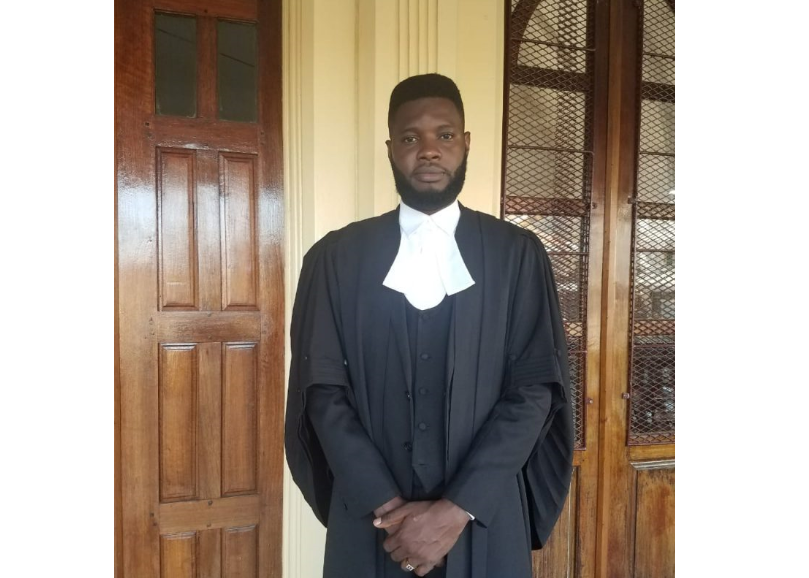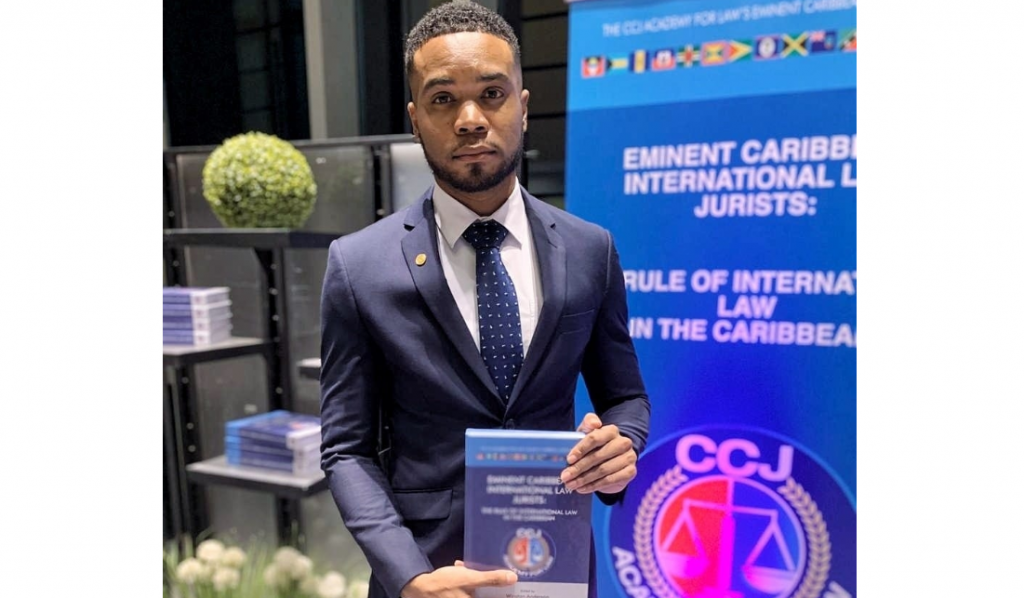By Chevy Devonish and Rico J. Yearwood
The Caribbean Examinations Council (CXC) released Caribbean Secondary Education Certification (CSEC) and Caribbean Advanced Proficiency Examination (CAPE) preliminary results on 22nd September 2020 to a mixed reception.
Many welcomed their results, but stakeholders in various jurisdictions, including Guyana, Barbados, Trinidad and Tobago and Jamaica, alleged a litany of discrepancies, including lower than expected grades, unjustified ‘Ungraded’ designations, and students listed as ‘Absent’ though they possess receipts showing they sat their exams. Outrage prompted protests and calls for a general review, which the CXC initially refused, but has since agreed to.
Legal action was, and possibly is still being contemplated by stakeholders in various jurisdictions, including Guyana, and Trinidad and Tobago.

These considerations raise important issues of municipal and community law, which issues are of high importance to all and sundry in the Caribbean territories in which CSEC and CAPE examinations are taken, specifically, whether the CXC is susceptible to the jurisdiction of local courts, or the Original Jurisdiction of the Caribbean Court of Justice (CCJ).

This article examines this issue and attempts to offer clarification. Relevant local legislation and international treaties have been examined toward this end.
To be clear, this article does not address, at all, the veracity of the claims made against the CXC. The jurisdiction of local courts will be addressed first.
The CXC was established under the Agreement Establishing the Caribbean Examinations Council (the Agreement). The Agreement was revised in 2018. This treaty has been incorporated into the local legislative architecture of the jurisdictions in which the CXC operates. In Guyana, Jamaica, and Trinidad and Tobago, the relevant pieces of legislation are their respective Caribbean Examinations Council Acts.
Guyana
The proviso of section 4 (2) of Guyana’s Caribbean Examinations Council Act, Cap 39:12 states that the CXC’s administrative and operational centres shall enjoy the privileges and immunities set out in Guyana’s Privileges and Immunities (Diplomatic, Consular, and International Organisations) Act. By section 1 of the Fifth Schedule of that Act, the CXC, with respect to the courts in Guyana, has “immunity from suit and legal process.” The CXC is thus exempt from legal suit in the courts of Guyana.
Trinidad and Tobago
Section 3 (2) (a) of Trinidad and Tobago’s Caribbean Examinations Council (Privileges and Immunities) Act, Cap 17:07 avails the CXC “immunity from legal process”, immunising the CXC from legal suit in the courts of Trinidad and Tobago. This was acknowledged in a letter by Darrel Allahar, attorney-at-law, in correspondence to the CXC on behalf of stakeholders in Trinidad and Tobago. Interestingly, he suggested the possibility of redress before the CCJ. Later in this article, we demonstrate why that option, if pursued, is unlikely to succeed.
Jamaica
In Jamaica, Article III (I) of the Diplomatic Immunities and Privileges (Caribbean Examinations Council) Order 1998, made under the Diplomatic and Immunities Act, avails the CXC “immunity from every form of legal process…” unless it waives same, so that the CXC is also immune from suit in Jamaica’s courts. This immunity was affirmed by the Supreme Court of Jamaica as recent as 2015 in CXC v. The Industrial Disputes Tribunal [2015] JMSC Civ.44, in which the court said that the immunity was conferred “…on the basis of functional necessity.” Quite importantly, the court rejected suggestions that the CXC’s immunities should be restricted, or are in breach of the Jamaican Constitution.
Barbados
The authors were unable to locate the relevant legislation in Barbados, and therefore make no conclusions thereon, although it would not be too reckless to assume that a similar state of affairs obtains for Barbados.
We now consider whether the CCJ has jurisdiction to hear a complaint related to the CXC.
Article 211 of The Revised Treaty of Chaguaramas (RTC) vests the CCJ with exclusive and compulsory jurisdiction to hear and determine disputes concerning the interpretation and application of the RTC in its Original Jurisdiction. This begs the question – Is the CXC amenable to the CCJ’s Original Jurisdiction? This question necessitates an analysis of the nature and purpose of the CXC in the context of CARICOM.
Significantly, as acknowledged previously, the CXC was created by the CXC Agreement and not the RTC. Next, it is necessary to have an appreciation for the dichotomy between Organs, Bodies, Institutions and Associate Institutions of CARICOM. For the sake of brevity, it is sufficient to say that these entities and their functions are enumerated in Articles 10-22 of the RTC, respectively.
Upon scrutinising the RTC, one would realise that the CXC is not listed as an Organ, Body, Institution or Associate Institution of CARICOM. Actually, no reference is made to the CXC in the RTC at all. Does it then follow that the CXC is not a CARICOM entity? This question must be answered in the negative. Article 21 of the RTC (headed “Institutions of the Community”) states that other entities may be designated as CARICOM Institutions. The CARICOM Secretariat, on its website, indicates that the CXC was designated as a CARICOM Institution subsequent to the birth of the RTC. Additionally, the Statute of the Caribbean Community Administrative Tribunal (CCAT) lists the CXC as a CARICOM Institution that is subject to CCAT’s jurisdiction. Therefore, the CXC is indeed a CARICOM Institution.
Having established that the CXC is a CARICOM institution, one may be inclined to espouse the view that CXC is amenable to the CCJ’s Original Jurisdiction. However, the CCJ’s own jurisprudence makes it clear that this is not so. The CCJ, in two previous cases, was called upon to determine whether it has jurisdiction over CARICOM Institutions and Associate Institutions.
The first, and perhaps more instructive, case which warrants consideration is Doreen Johnson v CARICAD [2009] CCJ 3 (OJ). The central issue in this case was whether a CARICOM Institution can be sued before the CCJ. In its judgment, the CCJ stated that the acts and omissions of CARICOM Institutions and Associate Institutions are not necessarily attributable to the Caribbean Community. Consequently, the Court unequivocally decided that that CCJ does not have jurisdiction to hear complaints against Institutions of CARICOM.
In the more recent case of Jason Jones v CLE et al. [2018] CCJ 2 (OJ), the CCJ had to determine whether it had the jurisdiction to entertain a claim against the Council of Legal Education (CLE). In light of Doreen Johnson, it was not surprising that the CCJ held that the CLE is not amenable to the CCJ’s Original Jurisdiction. In its rationale, the Court cited Doreen Johnson v CARICAD and acknowledged the fact that the CLE is further removed from the Community since it is not even an Institution or Associate Institution of the Community. The Court also underscored the fact that the CLE was established by an Agreement separate and apart from the RTC, and there is no indication that the RTC overrides this Agreement.
In view of the foregoing, it is fair and reasonable to say that there is merit in the submission that neither the CCJ nor local courts are available options for those affected by the CXC in this case to seek relief.
(Mr. Devonish, a Guyanese national, holds an LL.B (Distinction) from the University of Guyana, and a Legal Education Certificate from the Hugh Wooding Law School. He was the Valedictorian of the Hugh Wooding Law School’s graduating class of 2019, and the recipient of the Keith S. Sobion Memorial Prize for Demonstrated Leadership and Initiative. Mr. Yearwood, a Barbadian national, is the holder of an LL.B (First Class Honours) from the University of the West Indies, Cave Hill Campus (UWI Cave Hill) and an Honorary First Degree Diploma in Comparative Philosophical Study of Law from the Moscow State Institute of International Relations. He is also a 2020 graduand of the Hugh Wooding Law School and is currently a Public Law LL.M. Candidate at UWI Cave Hill)
*This article was first posted on Mr Devonish’s blog and was reposted on newsroom.gy with his permission.







